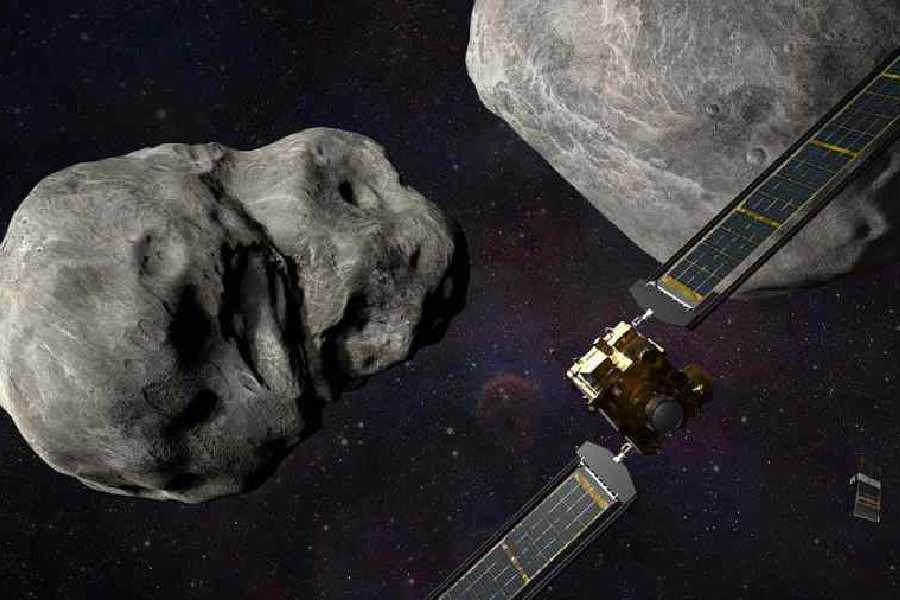Strategic diet
Sir — Astronauts making long journeys to space often face nutritional constraints — food stocks are not enough for extended stays and space technology is not able to provide a constant supply of fresh produce. Hearteningly, scientists have come up with a novel concept to address nutritional deficiency in space. According to a recent study, in the future, astronauts might be able to extract and convert carbon from asteroids into something edible. While mining asteroids may end up saving humans from meeting the same end as dinosaurs, irresponsible mining might backfire for the human race.
Sulogna Ghosh, Delhi
Tense ties
Sir — Relations between New Delhi and Ottawa have hit rock bottom amidst Canada’s fresh allegations about India’s hand in the murder of the Khalistani activist, Hardeep Singh Nijjar, in British Columbia last year (“Heated ties”, Oct 17). India has strongly rejected Canada’s charges and accused the prime minister, Justin Trudeau, of engaging in vote-bank politics. Both countries have expelled diplomats from each other’s high commissions.
There are roughly 600,000 Indian students in Canada at present. These students will feel the ripple effects of this diplomatic standoff. India should do what it takes to safeguard them.
Dorai Ramani Suresh, Ghaziabad
Sir — The escalation of the bitter dispute between India and Canada that has been simmering for a year now marks a new low in their bilateral relations (“India proof ‘validation’”, Oct 18). New Delhi has not only denounced the allegations made by Ottawa about Hardeep Singh’s assassination but also accused Justin Trudeau of supporting Sikh extremists in a desperate bid to hold on to power. India’s claim is not unfounded. After almost nine years in office, Trudeau is facing immense pressure from within the ruling Liberal Party to quit. His decision to go public, yet again, with a new set of allegations implicating India has the potential to rupture ties completely.
S.S. Paul, Nadia
Sir — India and Canada expelled six top diplomats belonging to each other’s high commissions in the wake of Ottawa’s fresh allegations against New Delhi. This is unbecoming of the two countries that have longstanding bilateral relations. Canada has named six Indian diplomats as persons of interest in the perpetration of violence against the Sikh community in Canada without providing compelling evidence. India, too, has criticised Canada for failing to curb the pro-Khalistan movement within its borders. A restoration of normalcy is necessary given the crucial trade relations between the two countries.
Dimple Wadhawan, Kanpur
Sir — With the United States of America, the United Kingdom, Australia and New Zealand — Canada’s partners in the Five Eyes, an Anglosphere intelligence network — rallying behind Ottawa amidst its diplomatic tussle with New Delhi, India is finding itself isolated in the comity of nations (“India eye of Canada ally storm”, Oct 17). The US has also made similar accusations against India regarding the assassination bid on the Khalistani activist, Gurpatwant Singh Pannun. India must thus play its cards carefully to avoid a multilateral crisis.
S.K. Chowdhury, Bengaluru
New direction
Sir — Han Kang is the first South Korean author to be bestowed the Nobel Prize for Literature. Kang has been honoured for her “poetic prose” that exposes the fragility of human life. The Nobel Committee has long been criticised for favouring the West. But Kang’s win shows that works from the East are being recognised as well. It is also a testament to the increasing global footprint of Korean literature.
Vijay Singh Adhikari, Nainital











